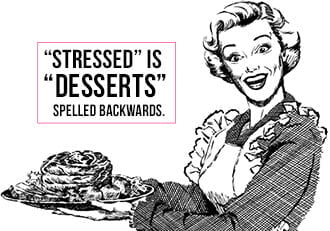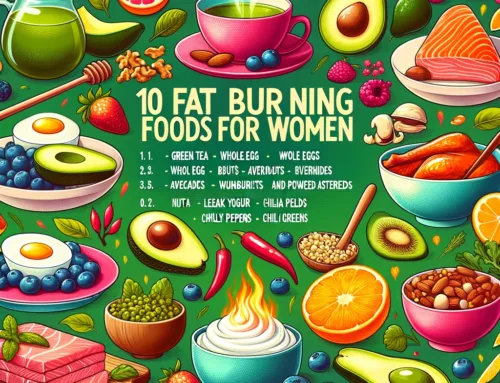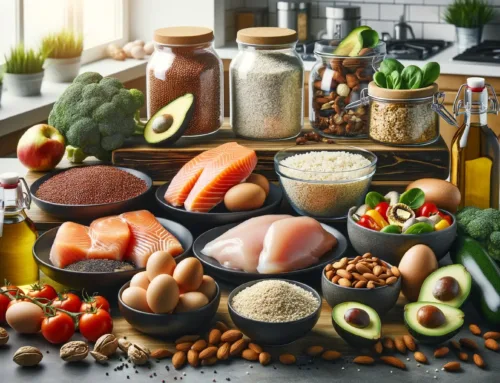
Stress eating is probably one of the most common eating disorders. Yes, it is a ‘mild’ form of an eating disorder, but stress eating consistently results in long lasting, negative effects on your body. Let’s do a quick test to see if you fall into a category of stress eating ladies out there:
- When you are stressed, do you choose foods that are high in salt, sugar and/or fat?
- Do you feel like you have to skip breakfast or other meals because you don’t have time to eat?
- Do you depend on caffeine to keep you awake in the morning or at other times of the day when you are feeling low in energy?
- Are you starving when you get home from a busy day of work and other activities because you have skipped meals, and find yourself eating to a point of being overly full on whatever you have around?
- Have you lost or gained weight recently due to a change in appetite or stress eating?
If any of the above apply to you, then read on, I have some amazing tips to balance your daily routine and avoid stress eating.
Stress Eating: What It Does To You
When we encounter something stressful, our nervous system and adrenal glands send signals to the rest of the body to help us think more clearly and be ready for a physical response – should it be required. This is a basic instinct that we have evolved to help us cope with potentially dangerous situations and is known as the “fight or flight” response.
However, in modern life, we can become stressed for many reasons other than impending danger with our bodies’ reaction staying the same. With their pre-determined instincts, our bodies’ still prepare our minds in this instinctive way and give less priority to other, less urgent, functions. Digestion is one such function that is given a lower priority during stressful situations. This is not good as poor digestion can make us feel unwell and in turn, can be a source of stress.
Chronic (long term) stress has been linked to the tendency of the body to store fat around the middle (stomach). Poor stress-management, for some people, is perhaps the most significant barrier to weight loss.
While stress often erodes healthy eating patterns, our need for certain nutrients actually increases during periods of stress. Research shows that when high demands are placed on the body, with a more rapid turnover of protein, vitamin C and many B vitamins that are used to produce energy. So when meals are skipped or a balanced diet is not maintained, nutrient needs are often not met and health may become compromised.
Being aware of how your body works and deals with stress can help you to manage it. After a stressful period, the human body can go into a ‘recovery mode’ where increased appetite and food cravings become more prevalent. At the same time metabolic rates drop to conserve energy. Being aware of these patterns can help you manage your stress levels and through nutrition and diet you can help your body recover from stressful periods more rapidly and minimize negative effects such as weight gain.
How to Stop Stress Eating
Tip #1: On stressful days, eat small frequent meals
- This will keep your metabolism ticking over all day and you will minimize peaks and troughs in energy levels.
- Eat breakfast, even though you may not feel hungry or believe you do not have enough time. Eating breakfast helps to kick start your metabolism for the day and also helps to stabilize your blood sugar level which will in turn reduce stress.
- Try setting alarms on your phone to go off every few hours to remind yourself to have something to eat, even if a small snack like a protein shake or yogurt.
Tip #2: Eat vegetables each day and focus on foods containing Vitamins B and C, and Magnesium:
- B Vitamins – Helps you feel more energetic after a stressful episode. Bananas, leafy green vegetables, avocados, nuts, seeds and also meat, fish and dairy products all contain essential B vitamins.
- Vitamin C – The adrenal glands contain the largest store of vitamin C in the body and are important in the production of stress hormones. Eat oranges, tomatoes, peppers, kiwi fruit, leafy green vegetables, broccoli and other foods rich in Vitamin C.
- Magnesium – Can help to relax muscles and reduce anxiety. Increase your magnesium intake by eating nuts, especially Brazil nuts, but also hazelnuts and peanuts. Leafy green vegetables, whole grains, especially oats, brown rice and beans are also good sources of magnesium. You can also take a relaxing bath with a good handful of Epsom salts (available at your pharmacist) as these contain magnesium that can be absorbed through your skin.
Tip #3: Do not confuse hunger or the urge to eat with thirst or cravings.
- If you feel hungry, first have some water or try flavoured water/sparkling water, then reassess if it is hunger.
- Ask yourself, am I hungry or am I craving this food because I am stressed, bored, upset… If you are hungry have a bit of protein & vegetables as your body may be telling you it needs a bit of extra nutrition.
- If experiencing cravings, try performing another activity to calm the craving like talking to a friend or removing yourself from the situation.
Stress eating is a response to a situation that is not comfortable. Given that it is completely your choice how to respond to stressful situations, it is completely avoidable and preventable by simply creating a different habit of responding to stressful situations. If you find yourself stress eating and need a professional to help you with it, schedule an appointment with me over the phone/Skype and we will go over the best strategy that would suit your lifestyle and habits!



